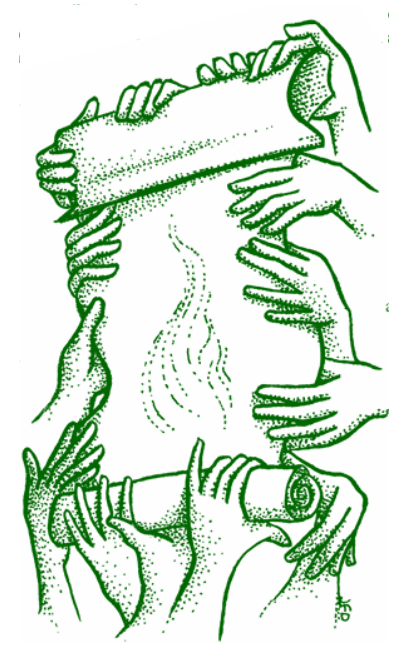









If the gospel accounts stopped just after Jesus’ entry into Jerusalem on Palm Sunday, how would you imagine the next few days playing out? The scene could easily be imagined as a hero’s entry in advance of his great triumph soon to follow. When Jesus entered Jerusalem, his disciples must have felt the same weight of expectations, the portent of what Jesus’ entry meant, not just for themselves, but for everyone. If Jesus was the promised Messiah, the events to come were not just concerned with the realities of one Passover in Jerusalem or the fate of the people of Judah but with the world and, yes, the world to come. What could one do but wait with sharp expectancy for events to unfold? And yet one unnamed woman does more than wait. Her actions interpret not only Jesus’ entry as the expected king, but the sort of king Jesus must be. After his entrance into Jerusalem, Jesus went to Bethany. In Bethany, “a woman came with an alabaster jar of perfumed oil, costly genuine spikenard. She broke the alabaster and poured it onto his head.” In this action, she simply supports the reception accorded Jesus as he entered Jerusalem as the king. The mashiah (Greek, christos) is the “anointed one,” and her actions tell us that she not only understands that Jesus is the anointed one but that she has a need or responsibility to anoint him. But who is she to anoint a king? The people gathered around Jesus, however, ask a different question: “Why has there been this waste of perfumed oil? It could have been sold for more than three hundred days’ wages and the money given to the poor! They were infuriated with her.” Their question is not without merit, for in scolding her they probably were attempting to voice Jesus’ concern for the poor seen throughout his ministry. Jesus asks another question: “let her alone. Why do you make trouble for her?” Somehow the concerned disciples have missed something. “She has done a good thing for me. The poor you have with you always, and whenever you wish you can do good to them, but you will not always have me.” Jesus’ response is not an attempt to mark out the permanence of poverty as a social problem but to note that her “good thing for me” has focused proper attention on him. Whether or not she knows the full implications of what she has done, she has directed those present to see Jesus as the Messiah, to grasp his Christological identity. Her identification of Jesus as the Christ by anointing went deeper, however, than even she knew, for she could not have known that she had “anticipated anointing Jesus’ body for burial.” Faithful women will later seek to care for Jesus’ broken body after his death in order to anoint it with burial spices, but they would not find a body. The unnamed woman, though, already had anointed Jesus not only as a king but as the humble King who emptied himself out in death.









